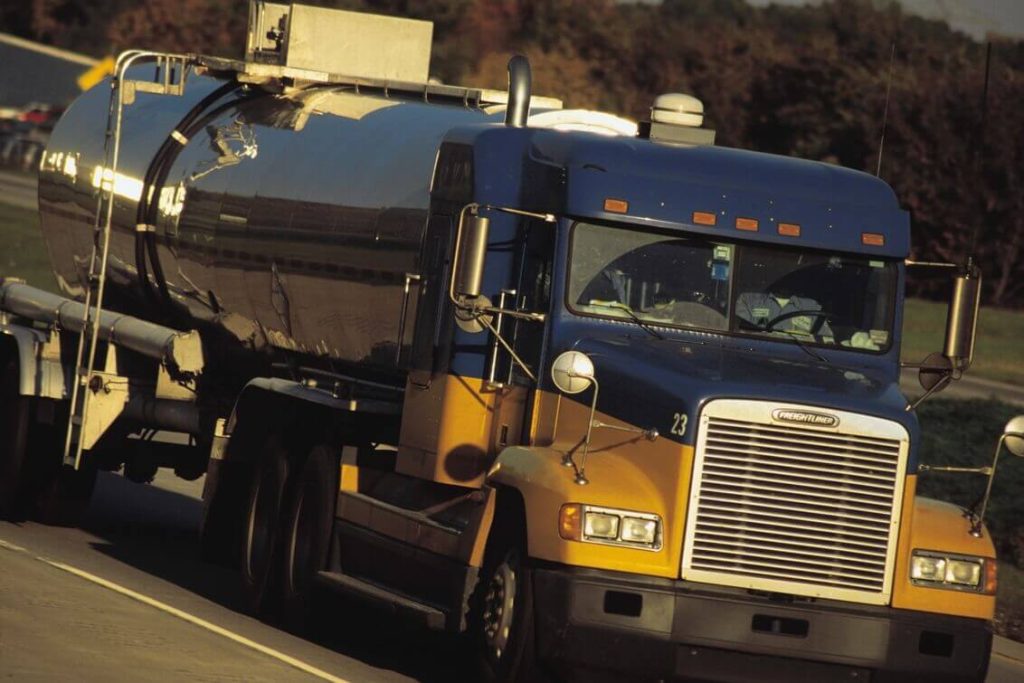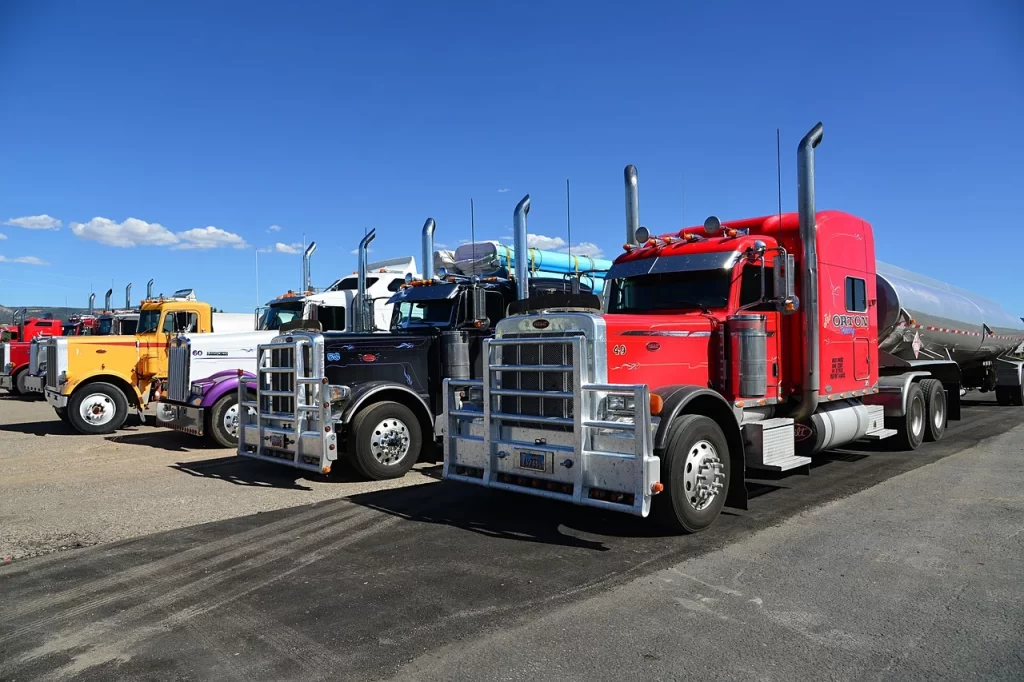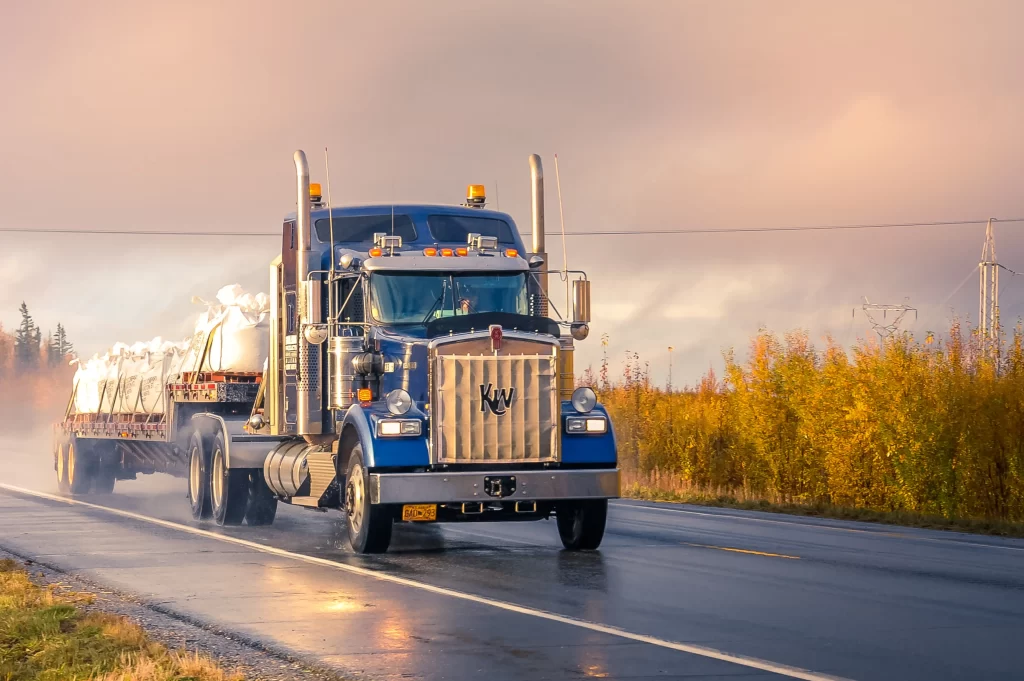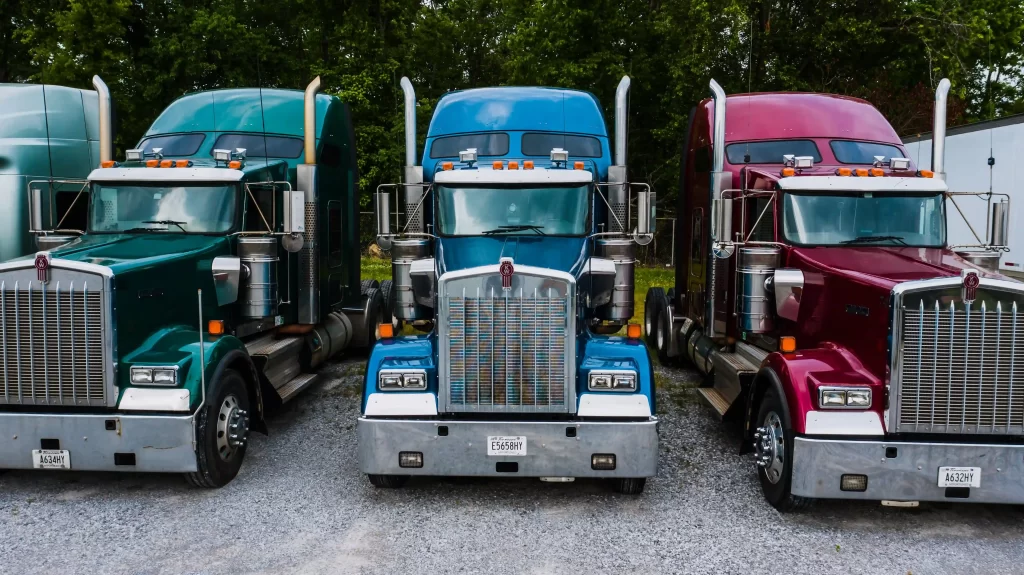
From truck stop cafes to corporate executive suites, speculation about rising issues has always been rife in the transport sector. While you could say the same about any industry, the transport sector specifically does tend to boast a well-oiled rumor mill, more than most.
But as we roll towards 2024, predictions about various industry challenges currently seem far more based on concrete data analysis and obvious inevitability. The bottom line is this: there does not appear to be smooth highways ahead for the trucking sector in 2024. If anything, the road ahead looks a little on the bumpy side, with a mixed bag of challenges.
From economic changes affecting everything from freight rates to the average truck driver salary – and the relentless rise of technology reshaping the industry – there’s a lot on the truck driver’s mind at the moment.
Through this article, we shall consider the biggest challenges for the trucking industry as we head into 2024.
- Fluctuating Economy
Currently, the trucking industry finds itself struggling with the uncertainty of an unpredictable economy. But these are not mere numbers on a chart; we can expect tangible, real-world impacts on freight demand and the costs of keeping those big wheels turning along the highways.
Freight demand responds in real time to economic shifts. In a booming economy, there’s plenty to haul, but when things slow down, trucks are usually left chasing fewer loads over shorter distances. And then there is the cost of doing business. From the price of truck parts to the average truck driver salary, everything seems to be going upwards at the moment. As a result, the greatest trucking industry challenges will be in dealing with these economic struggles.
- Fuel Prices and Operational Challenges
Fuel prices have been a problem for the industry In recent years, and when fuel costs increase, the trucking industry obviously feels it more than most.
It isn’t difficult to understand why. Higher fuel costs simply mean that haulage costs increase as a result, and these aren’t insignificant numbers we are talking about – overheads are increasing in a big way. Aside from the large industry titans, the independent operators feel the impact of this the most, most of whom are counting every mile and every drop of diesel.
The issue also goes beyond fuel. The rising cost of tires, maintenance, insurance, and a whole host of other expenses all add up and contribute to increasing overheads.
- Driver Shortage and Recruitment Efforts
The industry is facing a familiar problem that seems to be increasing every year: a shortage of truck drivers. It’s an issue that has been idling in the background for years but is becoming more and more problematic.
But why the shortage? Essentially, the issue stems from a mix of an aging workforce hanging up their keys for good and a younger generation that’s not quite rushing to replace them. The industry needs to focus on ways to make trucking appealing to the next wave of drivers by tapping into new demographics, like reaching out to more women drivers and younger people.
We need to demonstrate that trucking isn’t just a job; it is a viable career that pays very well indeed. Further strategies could range from ramped-up recruitment campaigns to partnerships with training schools in order to fill those driver seats and keep the industry moving forward.
- Rising Truck Driver Salary and Retention Strategies
However, the flip side to this is a rise in the average truck driver salary figures. As the driver shortage continues, companies are paying over and above the usual rates to keep and attract talent. While this is something we applaud, we believe other areas also need to be addressed relating to truck driver incentivization. In other words, throwing money at the problem isn’t a fix-all solution.
The industry basically needs to consider what makes drivers want to stay in employment. Is it more time at home? Better routes? A sense of belonging to the company? We need to create a workplace where drivers don’t just come for the paycheck but stay for job satisfaction. It isn’t a complicated notion: a happy driver is a loyal driver, and in an industry that’s running on a tight employment pool, retaining truck drivers will become one of the bigger trucking industry challenges of 2024.
- Changing Labor Regulations
Further trucking industry challenges relate to the new landscape of labor regulations, especially those marked by California’s Assembly Bill 5 – legislation that reframes the distinction between employees and independent contractors – causing change across the industry as a result.
For many trucking companies (particularly in California, of course) this means reevaluating their general workforce structure, challenging the traditional model of independent trucking. A real change in how transport companies classify and manage their drivers is expected, meaning a fundamental shift in the business model for many in the sector.
- Technological Advancements
On the technological front, autonomous trucks are no longer just a concept; they are slowly but surely becoming a reality that will eventually reshape long-haul transport at some point. How long it will take to become widespread, only time will tell – but 2024 should be the year when a marked improvement is made in that type of technology.
These inevitable self-driving giants offer potential benefits in efficiency and safety, reducing human error and increasing logistics capabilities. But how will the industry adjust? And is it a good or bad thing? Personally, we believe there should be more drivers on the road and less automation, but again, it seems inevitable at some point, so we must find a way to embrace it on some level.
- Green Trucking Evolution
We are also witnessing a green revolution, with green trucking initiatives, including the use of alternative fuels and electric vehicles, gaining ground. Some may view this as an eco-friendly drive and nothing more, but there is also an element of future-proofing here. 2024 might be the year when a greater number of technological changes than ever will be embraced. Whether that will be for better or for worse, only time will tell.
- Parking
Saving the most pressing concern for last, parking is easily one of the biggest challenges for the trucking industry in 2024. An inadequate number of official truck parking spaces is causing incredible harm to the industry, with an estimated 350,000 truck parking spaces available for a staggering 3.5 million trucks on our roads.
The negative implications of this are everywhere and in plain sight. With the majority of truck stops and rest areas full by mid-afternoon, truckers are spending hours each week needlessly burning fuel and wasting precious time endlessly circling parking lots looking for truck parking spaces that simply don’t exist.
As a result, less-than-ideal parking spots are sought instead: exit ramps are often nose to tail, unsafe underpasses are being used as a last resort, and the sight of trucks parked in residential areas is becoming more and more common. Traditional trucker-friendly parking lots such as Walmarts and various Casinos are starting to refuse drivers more commonly, forcing them to park in even more dangerous areas.
This ongoing crisis not only affects individual drivers but also causes harm through the entire supply chain, and with local municipalities and the federal government seemingly doing very little to address the issue, the problem is set to grow worse through 2024.
The Truck Parking Club Solution
Our direct experience with the parking issue is evidenced by the growing popularity of our service, with thousands of truckers now using Truck Parking Club to reserve private parking spaces on commercial land throughout the country.
With such affordable parking rates in widespread locations, the stress and uncertainty with parking have been reduced for many truckers. While that may sound like a contrived promotional line, we believe it is a genuine reflection of our impact on the industry’s parking crisis. We have helped make a real difference.
Truck drivers everywhere are vouching for the effectiveness and reliability of Truck Parking Club, and we are pleased to have made such a positive effect on the parking nightmare that is plaguing our industry.
Our platform not only simplifies the search for secure parking but also ensures that drivers have access to dependable spots – many with amenities and some with perimeter parking – making their days far more convenient and efficient.
Register Now For Convenient Truck Parking
It takes less than a minute to register, and then once you are a member of our truck parking community, everything is incredibly straightforward and beautifully convenient.
First Step
After registering, you will gain access to a nationwide list of convenient and comfortable parking options, most with added amenities. Use the location filter to pinpoint the perfect spot for you.
Second Step
Browse and reserve truck parking spaces, either immediately or up to one month in advance. Filter by amenities if you wish. Find your perfect spot. You can even communicate with property owners directly through the app if you have any queries.
Third Step
Drive to your reserved parking space. Settle in. Relax. Eat. Enjoy a peaceful night’s sleep, knowing you’re in a convenient and comfortable location.
That’s all there is to it. We didn’t just make Truck Parking Club affordable – we made the whole process streamlined, simple, and fast.
With so many trucking industry challenges ahead of us in 2024, the last thing our truckers need is the added headaches of parking spaces. Truck Parking Club is helping to change that.
Register now for peace of mind, knowing that great parking is just a few clicks away.
The information published herein is for general informational purposes only. Truck Parking Club does not make any representations or warranties about the completeness, reliability, legality, and accuracy of this information. Any reliance placed on such material is strictly at the user’s own risk. Truck Parking Club shall not be responsible for any losses or damages incurred in connection with the information published herein.





